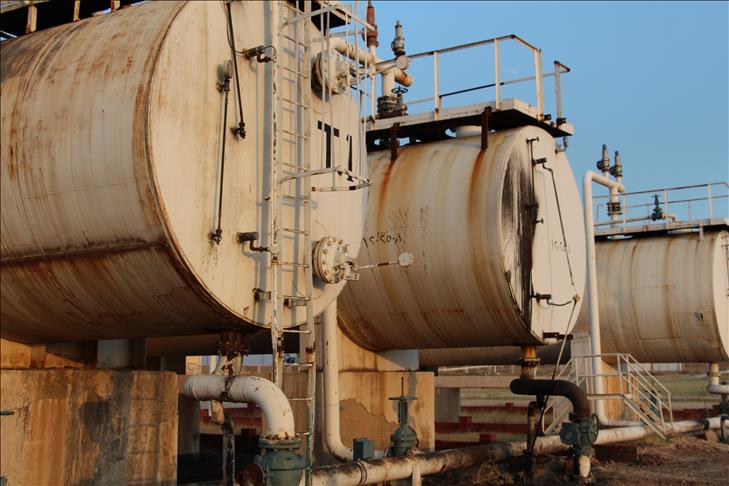
By Ovunc Kutlu
ANKARA
Saudi Arabia is targeting its competitors in the market by using its low cost oil production, and is putting them under pressure like U.S. oil mogul Rockefeller did more than a century ago, according to energy expert.
"Saudi Arabia is giving 'a good sweating' to its competitors in the oil market, like Rockefeller did in the past," Andrew Holland, an energy expert at the Washington-based American Security Project, told The Anadolu Agency.
Between 1870 and 1890, John D. Rockefeller, the American oil magnate, dominated the U.S. oil industry to make his company, Standard Oil, a monopoly by pushing its competitors out of the market with low oil prices and high oil supplies.
"When other companies were making too much money, Standard Oil would flood the market with oil, and give what Rockefeller called ‘a good sweating’ to other producers," Holland said.
"Rockefeller and Standard Oil knew that it could survive low oil prices much longer than their competitors could," he added.
Holland stressed that Saudi Arabia is intentionally targeting its competition of all sorts around the world.
"They (Saudi Arabia) are not discriminating among their competitors, which include Russia, Iran, Nigeria, Angola, Venezuela as well as U.S. shale oil producers," he added.
Saudi Oil Minister Ali al-Naimi claimed on Dec. 21 that the glut of oil supply in the markets and low oil prices were caused by countries outside of OPEC, the Organization of the Petroleum Exporting Countries.
While non-OPEC production averaged 56.2 million barrels per day in 2014, OPEC crude oil production was around 30 million barrels per day on average, according to the U.S.' Energy Information Administration data.
Al-Naimi also stated in December that Saudi Arabia, the biggest oil exporter in the world, would not cut production even if oil prices fall to $20 per barrel.
Saudi Arabia, which has the world's largest crude oil production capacity, has a relatively much lower oil production cost compared to other countries, according to oil experts.
"It is a generic strategy to be the low cost producer in your industry," said Ed Hirs, an energy economist at the University of Houston in the U.S.
"If other competitors want to engage in a price war, then the Saudis do not have to worry," he added.
Hirs emphasized that Saudi Arabia's competitors will not be able to sustain a price war, adding "If the Saudis just pay attention to their own production, the others will fall away by attrition."
Oil prices have fallen almost 60 percent in the last seven months, their fastest dive since 2008, due to oversupply and low oil demand in the world's markets.
The global benchmark Brent crude oil price dipped below $46 per barrel on Tuesday, creating a new record low since March 2009.
Anadolu Agency website contains only a portion of the news stories offered to subscribers in the AA News Broadcasting System (HAS), and in summarized form. Please contact us for subscription options.







